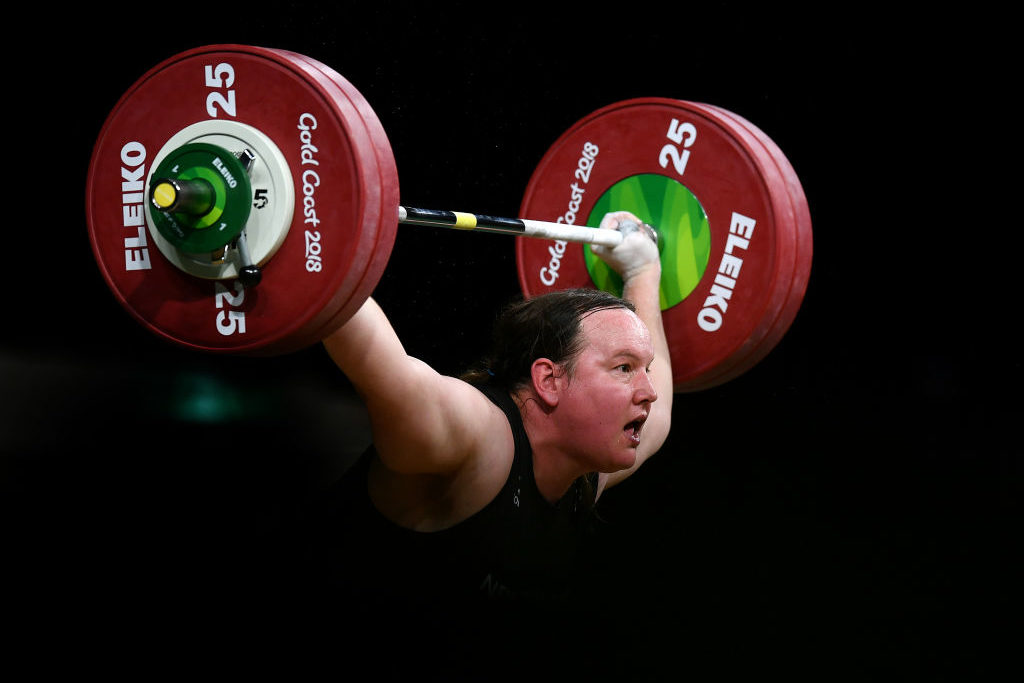It’s time for women to realize they’re just no good at sports. Women simply can’t compete. If they could, it wouldn’t be so easy for bigger, tougher, stronger, male-bodied competitors to trounce them. We’re seeing a revolution in women’s sports, and it’s not coming from the female-bodied competitors but their betters. Why else would women athletes be revolting?
Trans women athletes are fierce, formidable, and frankly better in all competitive categories except women’s gymnastics, and that’s only because that’s a sport that was dumbed down from the male version to be better suited to weaker bodies. Simone Biles may be the world’s most decorated gymnast, but she wouldn’t be half so medaled if she had to face small competitors reared in testosterone-filled bodies.
In rugby, weightlifting, cycling, and track and field, transgender athletes who were born male perform at higher levels than their female-bodied counterparts. Referees for women’s rugby in the United Kingdom can testify to how much better trans players are. Kelly Morgan, a trans woman who plays in the Welsh women’s league, is so powerful that, the club captain said, she once ‘folded an opponent “like a deckchair”’. As the injuries mount on the field, women should take note and give their spots on the team to the trans athletes that deserve them.
To play women’s rugby in the UK, transgender male-bodied persons have to pass a blood test showing that their testosterone levels have been below a threshold of five nanomoles per liter for at least 12 months prior to play. Presumably, women are able to pass that test as well, but it doesn’t make any difference. No matter how little testosterone female-bodied athletes have, male-bodied athletes who underwent puberty with testosterone are better, even if over a year they have lowered the amount of the hormone in their blood (yet another achievement mastered by trans athletes).
Selina Soule and Alanna Smith are learning the lesson the hard way. High school track and field sprinters from Connecticut, both girls were at the top of their heats and hoping for college scholarships. But when transgender track stars Terry Miller and Andraya Yearwood stepped up to the starting line, routinely winning first and second place respectively, Soule and Smith were no longer able to qualify. Soule and Smith have the nerve to blame Miller and Yearwood for their own inadequacies, but the fault lies with their substandard bodies, not with the superior athleticism of their male-bodied betters.
In New Zealand, weightlifter Laurel Hubbard garnered gold at the 2019 Pacific Games. Despite the best efforts of two Samoan competitors, the female-bodied Feagaiga Stowers and Iuniana Sipaia, Hubbard was able to lift 268 kg, 7 kg and 13 kg more than Stowers and Sipaia respectively. In photos of the victory, Hubbard stands on the highest podium, and the body language of the two flanking losers shows how ashamed they are of their pathetic female bodies that simply can’t lift as well as Hubbard, who had been living as a man named Gavin until her thirties. (The men’s Gold Coast competition was won by Aisake Tuitupou, with a lift of 330 kg.)
Michelle Dumaresq had been living as a woman for more than seven years when she won a world title in a mountain biking downhill competition in 2006. Dumaresq had been cycling since her teen years but didn’t start racing until after transitioning. Rachel McKinnon caused controversy in the cycling world when she won a world title in track cycling in 2018. Because these transitioned women have experienced life as men and have reaped all the chemical benefits of maleness, they are more aggressive and more daring. Simply put: Female-bodied women don’t have the stamina or the spirit to take the kind of risks those raised with testosterone-enriched bodies do naturally.
There have been a few sports legends who have spoken out about this trend of male-born persons competing with female-born persons, including tennis champ Martina Navratilova. Their argument is that a lifetime of testosterone prior to transition gives men who become women an unfair advantage over women born women, and they’re not wrong. A new study, published in the British Journal of Sports Medicine, showed that giving healthy 18- to 35-year-old women a 10 mg dose of testosterone cream for 10 weeks considerably increased their endurance and athletic performance. The cream increased testosterone levels in their blood to 4.3 nanomoles per liter, still below the International Olympic Committee’s guidelines for transgender individuals.
Since so many women’s sports organizations are determined to allow these superior competitors access to women’s teams and trials, the right thing is for every competitor to have the same amount of testosterone. Women should take testosterone to get their levels up, just as trans gender competitors should take estrogen to lower theirs. The only way to ensure male and female bodies are on an equal footing is to ensure they have the same hormonal levels. Otherwise, women should bow out and let those with superior bodies battle for dominance.



















